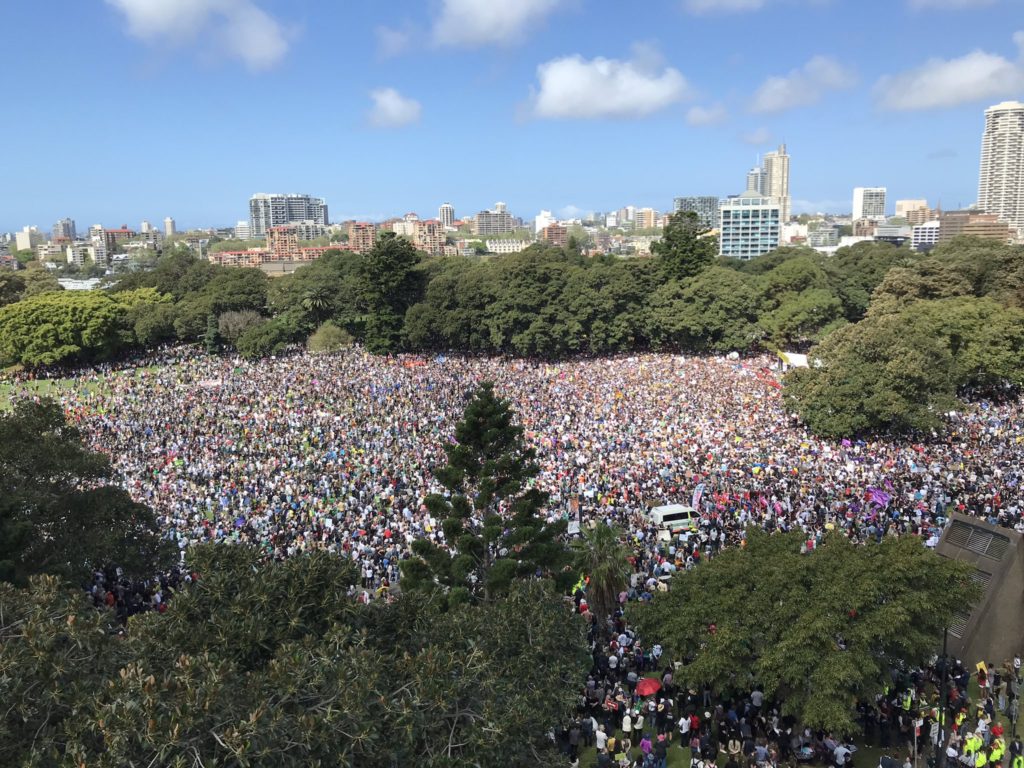Civil society representatives from around the world successfully put agroecology on the agenda of the United Nations Committee on World Food Security, as the truly innovative pathway to resolving environmental, hunger, health and inequality crises, and ensuring the right to food.
This year’s Committee on World Food Security (CFS), 14-18 October in Rome, was held in the context of deepening crises. World hunger and malnutrition are on the rise. Since 2015, the number of people without access to sufficient, nutritious food has been increasing. Over 800 million people — that’s one in every nine of us on Earth — experienced severe levels of food insecurity in 2018. Alongside this, malnutrition due to obesity is soaring, now at over two billion people. At the same time, the industrial food system is now recognized as a leading contributor to the multiple crises facing humanity.
The CFS is the foremost inclusive, intergovernmental and international political platform on food security and nutrition, with a vision to foster the right to adequate food for all. Since 2009, the Civil Society and Indigenous Peoples’ Mechanism (CSM) organizes the participation of civil society representatives – namely smallholder farmers, pastoralists, fisherfolks, indigenous peoples, agricultural and food workers, landless, women, youth, consumers, urban food insecure and NGOs. It is the largest international space of civil society organisations working to eradicate food insecurity and malnutrition.
“Here people from the global South, from the grassroots, come together with allies like Friends of the Earth International and La Via Campesina, to transform our messages into a political dimension, which we can take to negotiations with member governments.”
Bertrand Sansonnens, Pro Natura-Friends of the Earth Switzerland
“There are two words that people must always respect to be a good advocate within civil society: inclusiveness and solidarity. You cannot get that alone.”
Musa F Sow, West African peasants and producers network (ROPPA)

Agroecology on the agenda
For several years the CSM has been demanding that governments gathered in Rome discuss policy recommendations to promote agroecology.
It marks a huge achievement for civil society — led by small scale food producers that have been practicing agroecology for decades, even centuries — that governments agreed to a year of negotiations to set out policy recommendations on agroecology. This is in the face of huge opposition and counter lobbying from agribusiness-led governments.
It was also a significant success that a landmark report by experts advising the CFS, on “Agroecological approaches and other innovations for sustainable agriculture and food systems that enhance food security and nutrition”, clearly differentiated between agroecology and sustainable intensification approaches.
“The High Level Panel of Experts report demonstrates that agroecology is the only transformational option to address all the structural changes needed in our food system in a systemic and integrated way. It shows that Sustainable Intensification and Climate Smart Agriculture can only provide one dimensional solutions via incremental change.”
Ali Aii Shatou, Indigenous Peoples of Africa Coordinating Committee (IPACC)
“It is heartening that there was broad acceptance for the report which reflects our vision of agroecology as system change, especially in the face of huge opposition from powerful governments such as the USA, Australia and Canada. This is the result of people building our political power and joint vision over several years – which itself is also a success of the food sovereignty movement.”
Kirtana Chandrasekaran, Friends of the Earth International food sovereignty program coordinator (more…)




 In APAC, FoE groups joined the strikes in Malaysia,
In APAC, FoE groups joined the strikes in Malaysia, 


